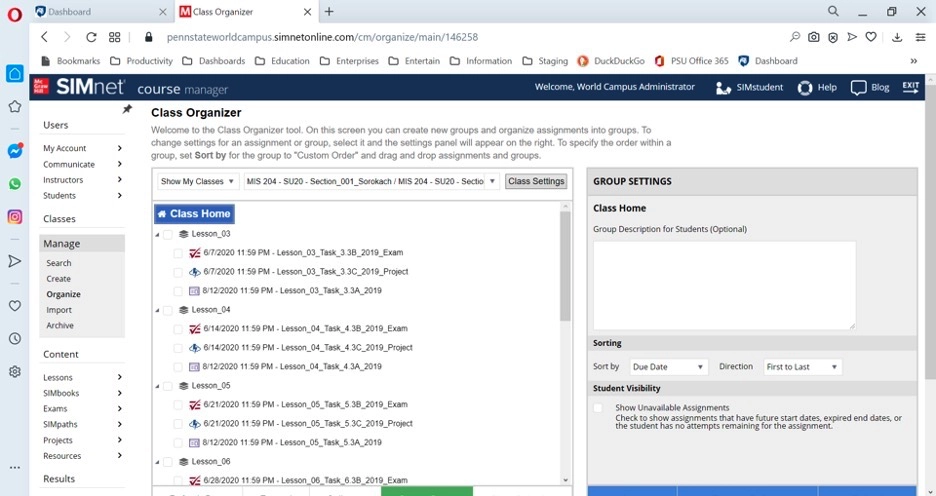How to Facilitate Assessment in Your Online Course | Frank Sorokach, Penn State
We interviewed Penn State lecturer, Frank Sorokach, about bringing assessment into your online Computer and Information Technology course.

We interviewed Penn State lecturer, Frank Sorokach, about bringing assessment into your online Computer and Information Technology course.
How would you recommend a new faculty member get started?
“When using SIMnet, there are multiple methodologies for assessing students. I have actually used SIMnet to assess students as part of the proficiency testing in our department assessment needs. SIMnet is a valuable tool for testing students on discreet learning objectives in exams, but also for testing the interaction of skills through the delivery of projects.”
What are some of the standards you need to keep in mind?
“There are several Online Learning Consortium (OLC) standards that are supported by SIMnet. Specifically, quality, course design, and assessment are important concepts supported by the OLC. Quality is supported in several ways within SIMnet. Primarily, the system is updated regularly to ensure that bugs or other issues are teased out of the system. Additionally, attention to specific detail in the simulator for things like multiple input methodologies of executing commands in the Microsoft Office suite are important aspects of providing a top-quality product. Course design is an important OLC concept, and this is supported by McGraw Hill in both the sound product they have developed, but also in their willingness to provide resources like Digital Faculty Consultants to ensure that rollouts occur as smoothly as possible. And finally, assessment is a key aspect of SIMnet because the system allows for various types of assessment, but also in the superior report writing capabilities allowed in SIMnet.”
What specific SIMnet tools would you recommend using?
“I believe that a solid mix of lessons, exams, and projects are the ideal tool configuration in SIMnet.”

Do you have a favorite SIMnet report that you use, and why?
“I currently use three reports. I like the Lessons report, the Exams report and have very recently added the Credentials report to something I check. I like the Lessons report because it tells me who is completing the lessons. I do not require the lessons as part of my course, but it is interesting to see who completes the lessons and how much time they are spending in the lessons.
The same is true of the Exams report. I can see when students are completing the exam, how much time they are spending in the exam, and how many questions they got correct. This can help discern trends.
Finally, I have recently starting using the Credentials report to see who is accomplishing the credentials in the course. It very quickly tells the instructor who has achieved the credentials at a glance.”


